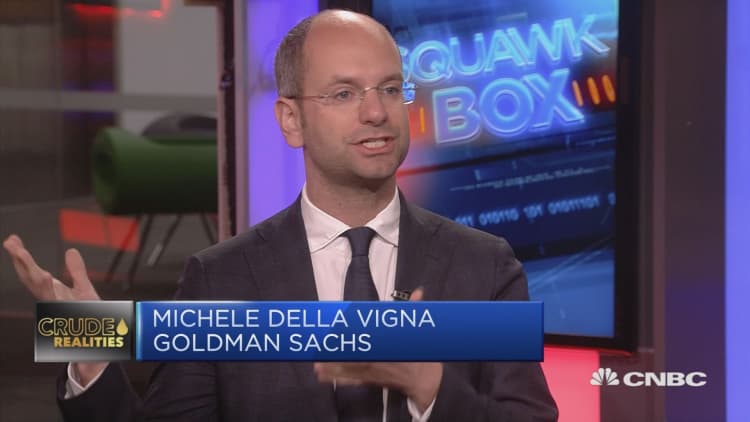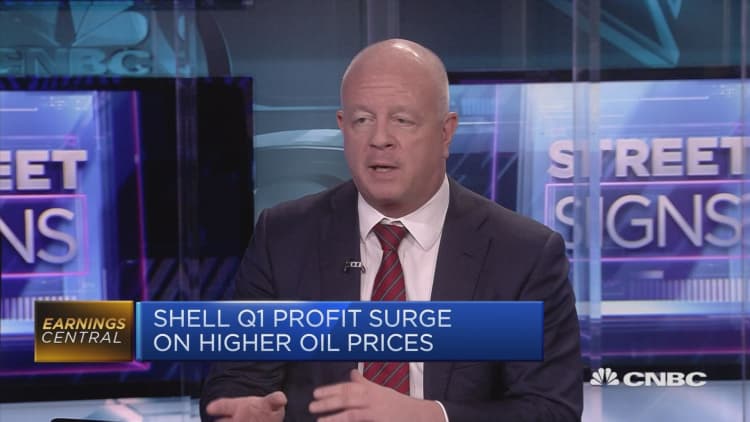
Oil prices are buoyant, oil major earnings appear to be looking up, but the oil industry is still entering an "age of restraint" rather than expansion, according to the co-head of European equity research at Goldman Sachs.
"Oil is going through a complete transformation, we think it's entering a whole new phase in the investment mega-cycle — what we call the 'age of restraint' as opposed to the 'age of expansion' that we've seen in the first decade of the 2000s," Goldman's Michele Della Vigna told CNBC's "Squawk Box Europe" on Thursday.
Della Vigna said the "restraint" was seen in the investment sphere and that would create a gap in production in the years ahead and a "very, very tight market in the 2020s." He said consolidation "is absolutely a key component of this stage in the cycle," but did not mention specific cases where this might happen.
Oil market watchers continue to watch a gradual recovery in oil prices after a prolonged period of low oil prices due to a glut in global supply and lackluster demand. The slump in oil prices hit oil majors hard with many cutting back on investment in long-term projects amid an uncertain future for oil prices.
Analysts like Della Vigna are warning that a lack of investment now could hit the industry and consumers later down the road.
He added that while peak oil demand was "at least 10 to 15 years away, probably more," he emphasized that "in the meantime, we need production growth."
"Everything the sector is investing in now is short-cycle, it's shale, and that never creates true longevity in the production base," he said.
Only the big seven oil companies, a group he called the "seven sisters" that included Shell, Total and BP, were investing in long-cycle projects, he said. "That leads us to a very tight market in the 2020s when we will heavily rely on OPEC to invest in capacity and grow production."
Two major oil companies reported first-quarter earnings Thursday that showed a boost from higher oil and gas prices.
Shell reported a 42 percent rise in profits in the first quarter with net income attributable to shareholders, on a current cost of supplies (CCS) basis (used as a proxy for net profit) at $5.322 billion. Meanwhile, French oil major Total also reported better-than-expected first-quarter earnings with net adjusted profit of $2.9 billion, above the $2.77 billion expected by analysts polled by Reuters. Total's cash flow also increased by 50 percent from a year ago.
Remarking on the latest earnings, Della Vigna believed a similar positive story would be seen with other oil giants too; BP is due to report next week.

"I think the 2018 results (for oil majors) will show the best free cash-flow in over a decade," he said.
"(The seven sisters) effectively dominate deep water and liquefied natural gas (LNG) developments worldwide, leading to better cost of access, better management of the supply chain and better tax and regulatory terms and, overall, what that brings back is double-digit returns for big oil, something we haven't seen in a decade," he said.


